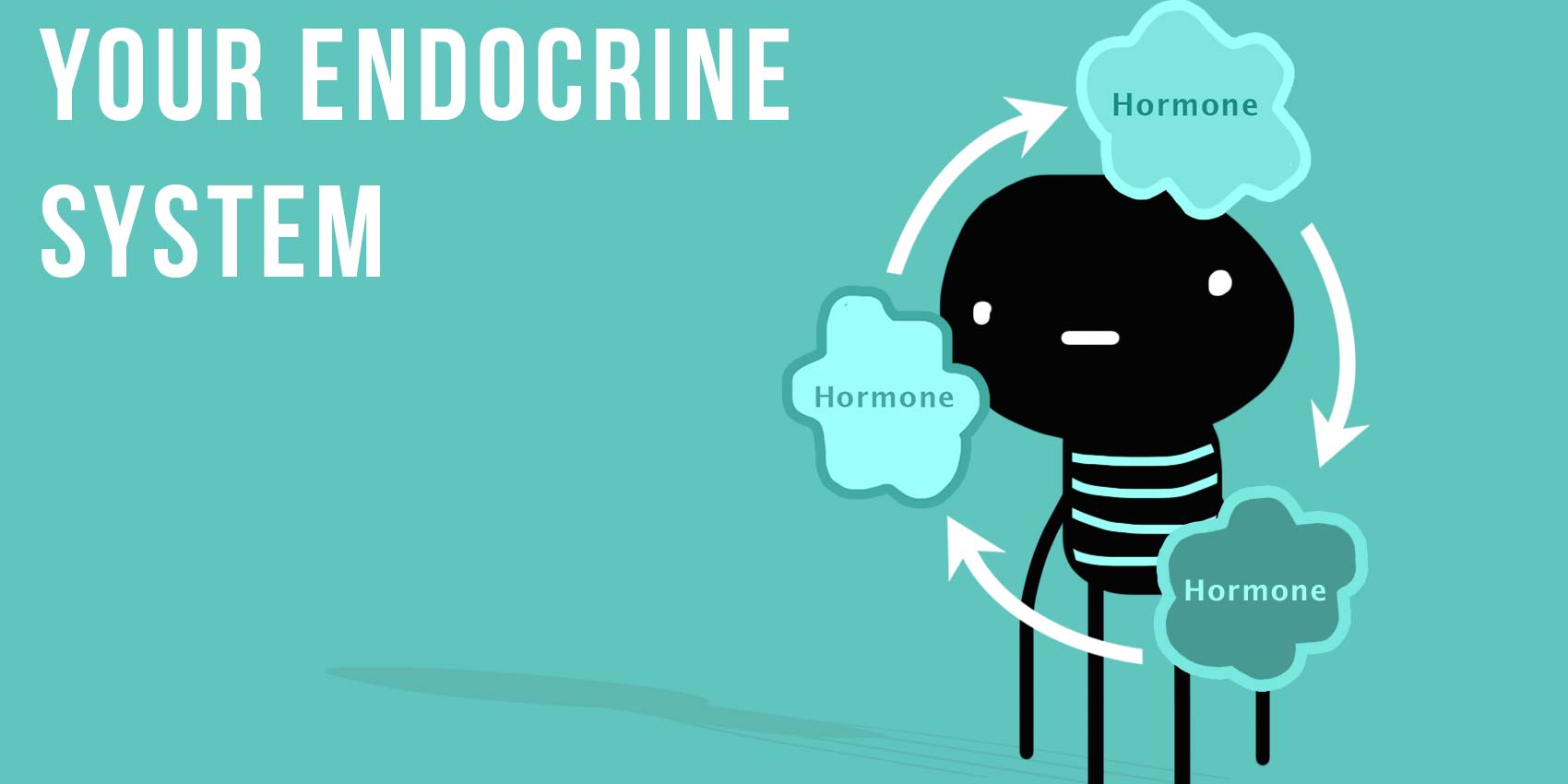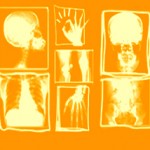09 Nov Your endocrine system

The Endocrine System is made up of 8 glands that secrete hormones into the body. Hormones are chemical messengers that carry instructions to various parts of the body. The glands release hormones into the bloodstream and these hormones go off and do things like control your mood, your growth, how your organs function, how much energy you use and even your ability to reproduce.

DID YOU KNOW? It’s your endocrine system that directly organizes the absorption (meaning, how much is taken in) of nutrients into your body via your bloodstream.
The 8 main glands of the endocrine system are:
pancreas – adrenals– gonads (ovaries or testes) – hypothalamus, pituitary- pineal body – thyroid- parathyroids
Here are few highlights as to what some of them do:
In order to maintain homeostasis, your hypothalamus controls your autonomic nervous system, your endocrine system and your limbic system. Your hypothalamus rocks because it is in charge of many autonomic functions like your thirst, hunger, body temperature, and more…(it’s in charge of homeostasis. Remember that term from the last sub-post?)! To do so, it gathers information sensed by the brain from different parts of the brain and then sends that info to the pituitary so the pituitary can release hormones to respond. For example, your hypothalamus helps regulate your circadian rhythm—your sleep/wake cycle—which means the hypothalamus takes sensory information from the brain—is it light or dark out?—and then sends that info to the pituitary—it’s dark, time for sleep!—so that the pituitary then chooses which glands to activate—hey pineal! We need some melatonin please so we can sleep!!
Hence, this is why your pituitary gland is considered by some to be the master gland. It takes messages from the hypothalamus and uses these messages to stimulate all the other hormone-producing glands of the endocrine system: the hormones it produces affect the adrenal glands, thyroid, ovaries and testes telling them to do their respective jobs at the appropriate times. The hormones those glands produce to do their jobs will eventually circulate back to the pituitary so that it knows if everything is getting done or if it needs to send more hormones.
Your thyroid is located in your neck and it regulates (meaning, it manages) your metabolism. What’s that? Your metabolism is the rate at which your cells burn fuel from food to make energy. Your thyroid tries to burn energy at just the right rate- not too fast and not too slow (it’s a little like Goldilocks) – but the thyroid can sometimes be under active (hypothyroid) or Over active (Hyper thyroid) which causes problems (but can be treated with medication).

DID YOU KNOW? Dogs have a very fast metabolism. In ancient times—when they were wolf-like—they could eat raw meat and not get diseases because they metabolized it so fast that the diseases didn’t have time to take hold. But don’t try that with Fluffy tonight, dogs have evolved, too.
Your adrenal glands produce hormones that (1). manage the salt and water balance of your body, (2). respond to stress, and (3). help your immune system. (The adrenals do more, but those are the main functions.) Of note, adrenaline is the hormone released by the adrenals to get your heart racing and your blood pumping in response to excitement or a threat. Cortisol, the hormone produced in response to stress, is also regulated by the adrenal glands.

DID YOU KNOW? Your Pineal gland secretes melatonin, the chemical that helps you to sleep!
Your Gonads (ovaries or testes) produce your sex hormones that are responsible for the changes during puberty and for your ability to reproduce. Simply put, the gonads in the male are the testes—also referred to as testicles—(they produce testosterone) and the gonads in the female are the ovaries (they produce estrogen and progesterone). (In your chill time with friends, you may be using the term primarily to refer to “nads” or testicles. But actually, they refer to the female reproductive organs as well.)
Your pancreas is actually two glands that create one organ. One part of the gland produces insulin and glucagon which control the amount of sugar in the blood. The other gland serves as part of the digestive system as it secretes the juices necessary for the digestion of fats.
So, those are the highlights of what your endocrine system does for you (it does a lot more believe it or not!). What can you do for your endocrine system? Eat right and get plenty of exercise. Always see your doctor if you feel extraordinarily tired and make sure you know if anyone in your family has any history of endocrine issues. That’s helpful for your doctor to know.




Post Question:
If you were a chemical messenger living inside your body, what message would you like to send?
Answer the post question here
What's being said